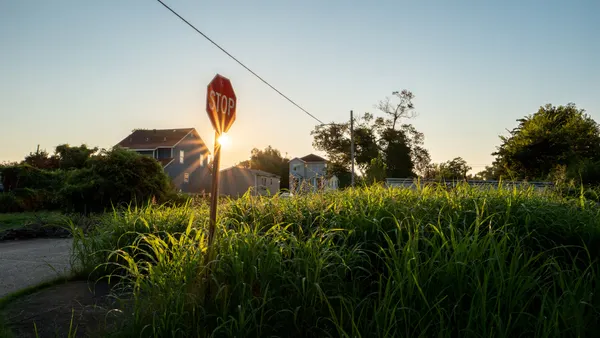Dive Brief:
- The Roanoke, Virginia, City Council is reassessing zoning changes it passed last year that eliminated single-family-only zoning and allowed multifamily housing in areas where it had previously been excluded after two lawsuits from residents challenged the reforms.
- The lawsuits have cost the city more than $85,000 in legal bills as of May, the Roanoke Rambler reported. Both lawsuits were paused in late August after the City Council agreed to review the zoning changes, the Cardinal News reported.
- Two City Council members will propose amendments to the zoning reforms over the next month and present them to the public, according to the report.
Dive Insight:
The U.S. does not have enough housing to meet its needs. Estimates of the shortfall range from 1.5 million to 3.7 million units, according to the Joint Center for Housing Studies at Harvard University, citing data from the National Association of Home Builders and the Federal Home Loan Mortgage Corp.
Reforming local zoning laws that prohibit multifamily housing development in certain areas is one way cities can increase affordable housing production. Backlash from residents can be strong, however. Roanoke is not the only city to face resident lawsuits.
“A smaller group of local residents does sometimes stop reforms to allow more homes,” Alex Horowitz, project director for housing policy initiatives at the Pew Charitable Trusts, told Bankrate in December.
When Charlottesville, Virginia, attempted to do away with single-family-only zoning last year, a state judge voided the measure on a technicality, effectively leaving the city without a zoning code.
Austin, Texas, faced a flurry of legal challenges when it moved to reduce housing lot size requirements from 5,750 square feet to 1,800 square feet per single-family house last year. The city lost in court in 2020, according to KUT News, but a replacement measure has prevailed — so far.
Several states have attempted to take control of local zoning — and have faced similar pushback. Six cities in Colorado sued the state this spring over attempts to impose housing and zoning reforms to create more affordable housing.
Roanoke issued a study of its zoning amendments last year to address resident concerns about increased density. It concluded that the “expected rate of change on the number of new dwelling units and related density will inherently be incremental and gradual over time with limited, if any, effects on infrastructure and public services.”











